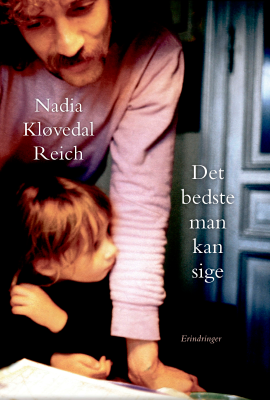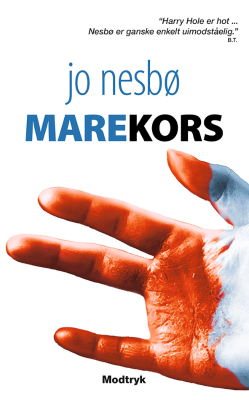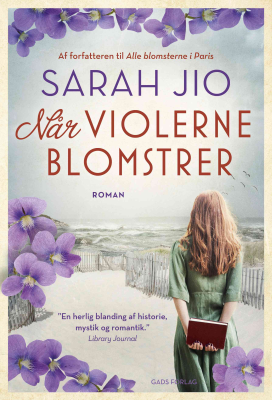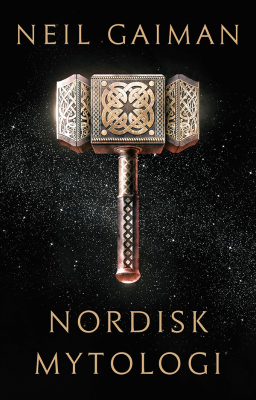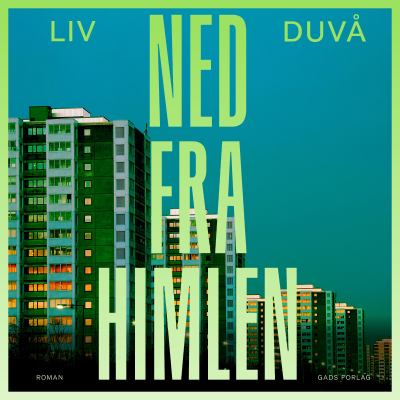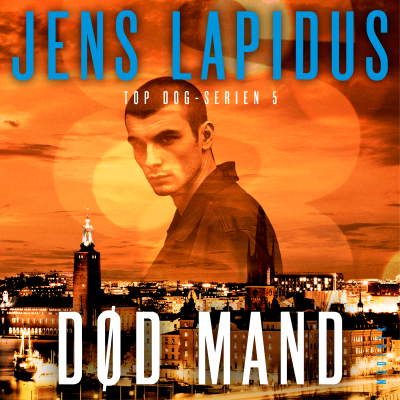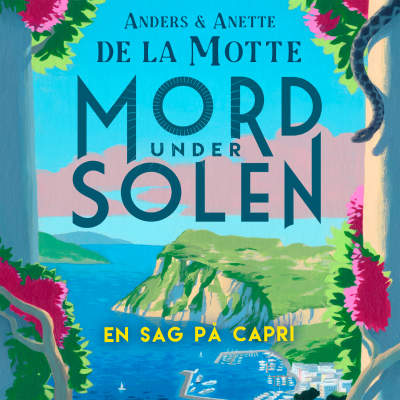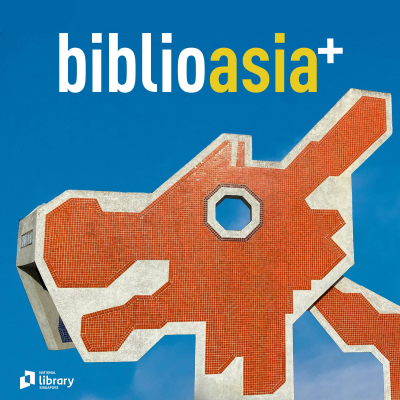
BiblioAsia+
Podcast af National Library, Singapore
BiblioAsia+ is a podcast series about Singapore stories: some unfamiliar, others forgotten, all fascinating. Does Singapore have a stone age? What’s happened to the murals at the old Paya Lebar airport? Who were some local tennis greats? Find out in this original podcast by the National Library Singapore.
Begrænset tilbud
3 måneder kun 9,00 kr.
Derefter 99,00 kr. / månedIngen binding.
Alle episoder
36 episoderHawkers traditionally sell their food on streets. Uniquely in Singapore though, they ply their trade in fixed stalls in hawker centres. Ryan Kueh, author of the bestselling From Streets to Stalls, tells us how the hawker culture has evolved in Singapore since the colonial period and what hawker centres have come to represent. Ryan Kueh holds a master’s degree from Tsinghua University under the Schwarzman Scholars programme and completed his bachelor’s at Yale–NUS College, where he read philosophy, politics, economics and history. His key research focus is consumption culture and history, with a secondary interest in international affairs. He is the author of From Streets to Stalls: The History and Evolution of Hawking and Hawker Centres in Singapore. What Ryan Talked About * 00:00 – How the term “hawker” is understood differently in Singapore, compared to in other countries * 04:44 – When hawking might have started in Singapore * 05:32 – Preconditions for hawking * 07:40 – Colonial records, and hygiene and urban discipline issues during colonial times * 09:56 – Why hawking was an attractive and accessible job then * 11:00 – Challenges colonial authorities faced in controlling hawkers * 11:49 – Post-independence reforms in hawking * 14:00 – Establishment of hawker centres and their purpose * 16:20 – How rent subsidies keep hawker food affordable * 18:08 – Origins of the first hawker centre and differences from hawker shelters * 21:22 – Loss of food heritage * 24:00 – Gentrification in hawker centres * 26:00 – Hawking as a vocation in the past and today * 30:10 – Why Singapore’s hawker culture won the UNESCO recognition for intangible cultural heritage * 31:15 – Contemporary political use of hawker centres * 33:00 – What Ryan is working on and what his favourite hawker centre is * 36:47 – Hawking is… Transcript * Read the transcript [https://biblioasia.nlb.gov.sg/podcast/hawker-culture-in-singapore-ryan-kueh/transcript]: https://biblioasia.nlb.gov.sg/podcast/hawker-culture-in-singapore-ryan-kueh/transcript Subscribe to BiblioAsia [https://form.gov.sg/616799db4d9b61001398f79b] for more stories about Singapore. This episode of BiblioAsia+ was hosted by Jimmy Yap and produced by Soh Gek Han. Sound engineering was done by Nookcha Films. The background music “Di Tanjong Katong” was composed by Osman Ahmad and performed by Chords Haven. Special thanks to Ryan for coming on the show. BiblioAsia+ is a podcast about Singapore history by the National Library Singapore.
Many people know of the story of Badang the strongman, an aboriginal slave who gains supernatural strength after eating the vomit of a spirit. He throws a stone, which might or might not be the Singapore Stone, and his miracle-working grave is believed to be on Pulau Buru in the Riau Archipelago. However, independent scholar William Gibson tells us the tale of Badang (and the location of his grave) is much more complicated than is generally known. Dr William L. Gibson is an author and researcher based in Southeast Asia since 2005. A former Lee Kong Chian Research Fellow of the National Library Singapore, he is the author of Keramat, Sacred Relics and Forbidden Idols in Singapore (Routledge, 2024). His articles have appeared in Signal to Noise, PopMatters.com, The Mekong Review, Archipel, History and Anthropology, the Bulletin de l’École française d’Extrême-Orient and BiblioAsia, among others. What William Talked About * 00:00 – What a keramat is * 01:13 – Legend of Badang the strongman * 02:20 – William's past research on keramat * 03:07 – Badang as a national icon and his myth in the Malay Annals * 04:43 – British interest and early translations of Badang’s story * 06:26 – The rock-throwing legend and its transformation into a national tale * 08:26 – Origins of the Singapore Stone and colonial myth-making * 11:00 – The three different rocks associated with Badang * 13:02 – The search for the real burial site of Badang * 18:08 – The shrine’s transformation into a government-designated cultural site * 20:40 – The Karimun inscription and its link to Badang folklore * 22:00 – Other stones with footprints and mythical associations * 24:00 – Theories of Badang’s burial sites * 26:00 – Other folktales with vomit-eating as a power transfer motif * 28:00 – Broader meaning and significance of keramat and nature shrines * 31:05 – Existing keramat in Singapore * 35:10 – Stories of the keramat Habib Noh * 39:01 – Challenges of preserving keramat in Singapore * 42:00 – Fates of kermat in Singapore, Malaysia and Indonesia * 44:07 – The heritage value of keramat * 47:55 – Mythology is… Transcript and Resources * Read the transcript [https://biblioasia.nlb.gov.sg/podcast/Badang-the-strongman-a-miracle-working-grave-a-folk-tale-and-a-nations-mythology/transcript]: https://biblioasia.nlb.gov.sg/podcast/Badang-the-strongman-a-miracle-working-grave-a-folk-tale-and-a-nations-mythology/transcript * Read the BiblioAsia article [https://biblioasia.nlb.gov.sg/vol-21/issue-1/apr-jun-2025/origins-badang-strongman-singapore-stone/]: https://biblioasia.nlb.gov.sg/vol-21/issue-1/apr-jun-2025/origins-badang-strongman-singapore-stone/ Subscribe to BiblioAsia [https://form.gov.sg/616799db4d9b61001398f79b] for more stories about Singapore. This episode of BiblioAsia+ was hosted by Jimmy Yap and produced by Soh Gek Han. Sound engineering was done by Nookcha Films. The background music “Di Tanjong Katong” was composed by Osman Ahmad and performed by Chords Haven. Special thanks to William for coming on the show. BiblioAsia+ is a podcast about Singapore history by the National Library Singapore.
When Peng Tsu Ying came to Singapore from Shanghai in the late 1940s, he could not find a deaf person like him. Determined to improve the situation for the deaf community, he founded Singapore's first school for the deaf in 1954. Librarian Nathaniel Chew tells us about Peng's advocacy, his own journey learning the Singapore Sign Language and the different ways it has evolved. Nathaniel Chew is a librarian with the National Library Singapore. He works with the Singapore and Southeast Asia Collection, and his research interests lie at the intersection of language and society. What Nathaniel Talked About * 02:13 – Who Peng Tsu Ying was * 04:07 – What Singapore was like for the deaf community before WWII * 05:34 – How Peng started the first school for the deaf * 07:42 – Peng’s foray into car racing * 10:12 – Joining forces with the Red Cross * 11:13 – What the Singapore Sign Language is * 19:00 – How Nathaniel got interested in sign language * 19:40 – Peng’s influence on Singapore’s deaf community * 22:17 – Nathaniel’s research interest in linguistics * 23:56 – Nathaniel’s take on Singlish * 25:28 – BiblioAsia is… Transcript and Resources * Read the transcript [https://biblioasia.nlb.gov.sg/podcast/peng-tsu-ying-singapore-pioneering-deaf-educator-nathaniel-chew/transcript]: https://biblioasia.nlb.gov.sg/podcast/peng-tsu-ying-singapore-pioneering-deaf-educator-nathaniel-chew/transcript * Read the BiblioAsia article [https://biblioasia.nlb.gov.sg/vol-21/issue-1/apr-jun-2025/deaf-education-singapore-sign-language/]: https://biblioasia.nlb.gov.sg/vol-21/issue-1/apr-jun-2025/deaf-education-singapore-sign-language/ Subscribe to BiblioAsia [https://form.gov.sg/616799db4d9b61001398f79b] for more stories about Singapore. This episode of BiblioAsia+ was hosted by Jimmy Yap and produced by Soh Gek Han. Sound engineering was done by Doppler Soundlab. The background music “Di Tanjong Katong” was composed by Osman Ahmad and performed by Chords Haven. Special thanks to Nathaniel for coming on the show. BiblioAsia+ is a podcast about Singapore history by the National Library Singapore.
In 1952, four Singapore artists – Chen Chong Swee, Chen Wen Hsi, Cheong Soo Pieng and Liu Kang – travelled to Java and Bali in search of artistic inspiration. The following year, they put up an exhibition showcasing art they had produced from the trip, an exhibition often hailed by art historians as a milestone in Singapore art history. Yet much of the trip has been shrouded in mystery, until Gretchen Liu, the daughter-in-law of Liu Kang, discovered Liu Kang's archives and photographs from the trip. She tells us how the trip came together, what the artists did in Java and Bali, and what the trip meant to them as artists. Gretchen Liu is a former journalist, a writer and an independent scholar with an interest in visual culture and heritage. She is the editor and author of several books. Most recently, she has been researching the early life of her father-in-law Liu Kang, a journey that has taken her deep into early 20th-century Chinese art history. Her latest book is Bali 1952: Through the Lens of Liu Kang [https://catalogue.nlb.gov.sg/search/card?recordId=300094843]. What Gretchen Talked About * 02:14 – The importance of the 1953 exhibition in art history * 05:20 – The story of the shoebox * 08:17 – What makes the newly discovered photographs special * 11:00 – The significance of the artists’ journey to Bali and Java * 14:11 – How their journey began with the kindness of strangers * 16:07 – The life and times of the four pioneering artists * 21:11 – Gretchen’s journey following in the footsteps of the artists * 23:15 – Her intention in showcasing the photographs alongside the art they inspired * 26:14 – The hardest part about researching the book * 27:29 – How Gretchen became interested in Singapore’s visual history * 30:02 – The book she is most proud of * 32:21 – Her experience as the in-house historian for the Raffles Hotel * 35:19 – What is next for Gretchen * 35:56 – Family history is… Transcript * Read the transcript [https://biblioasia.nlb.gov.sg/podcast/the-misunderstood-trip-that-led-to-the-1953-landmark-art-exhibition-gretchen-liu/transcript]: https://biblioasia.nlb.gov.sg/podcast/the-misunderstood-trip-that-led-to-the-1953-landmark-art-exhibition-gretchen-liu/transcript [https://biblioasia.nlb.gov.sg/podcast/the-misunderstood-trip-that-led-to-the-1953-landmark-art-exhibition-gretchen-liu/transcript] Subscribe to BiblioAsia [https://form.gov.sg/616799db4d9b61001398f79b] for more stories about Singapore. This episode of BiblioAsia+ was hosted by Jimmy Yap and produced by Soh Gek Han. Sound engineering was done by Doppler Soundlab. The background music “Di Tanjong Katong [https://www.youtube.com/watch?v=uA2v7ka5TAI]” was composed by Osman Ahmad and performed by Chords Haven. Special thanks to Gretchen for coming on the show. BiblioAsia+ is a podcast about Singapore history by the National Library Singapore.
Zubir Said (1907–87) gave Singapore its national anthem, “Majulah Singapura”, and its official Children’s Day song, “Semoga Bahagia”. Working with theatre company Wild Rice, music director Julian Wong put together a critically acclaimed production on the life of Pak Zubir that mixed history, music and memory in a moving show, Don't Call Him Mr. Mari Kita. Performances were sold out in 2022 and 2024. In this episode, Julian tells us the challenges of putting up the show, including the research and transcription, and reveals if he’s a Swiftie. Julian Wong is a composer, arranger, music director, educator and performer. He has composed for Wild Rice, including An Inspector Calls, Pinocchio, Tartuffe: The Imposter, etc. As music director, he has helmed overseas assignments such as Liao Zhai Rocks! (Shanghai) and Spotlight Singapore (Mexico City), as well as home-grown projects such as Hossan Leong’s Hossan-AH! 50, Pam Oei’s Faghag and The Theatre Practice’s If There’re Seasons. Additionally, Julian has conducted and arranged for Joyful Strings, Ministry of Bellz, Orchestra of the Music Makers, Metropolitan Festival Orchestra, and many more. Julian graduated from Berklee College of Music, where he received the Professional Music Excellence Award and Alex Ulanowski Award. In 2023, he received the Young Artist Award, Singapore’s highest award for young arts practitioners. What Julian Talked About * 03:07 – How the show Don't Call Him Mr. Mari Kita came about * 05:17 – Julian’s research into the life of Pak Zubir Said * 08:04 – Performing the show during Covid * 10:13 – How Julian arranged his version of “Semoga Bahagia” * 12:35 – Difficulties of researching Pak Zubir’s life * 13:40 – The most interesting discovery about Pak Zubir * 15:49 – A touching story about Pak Zubir * 17:50 – Continuing the legacy of teacher-student collaborations * 18:59 – How “Majulah Singapura” was conceived * 22:44 – What Julian learnt about Pak Zubir from his teacher Iskandar Ismail * 24:42 – Julian’s relationship with his teacher * 26:37 – Mentoring students budding musicians at ITE * 27:57 – On winning the Young Artist Award by the National Arts Council * 29:43 – Favourite song from Don't Call Him Mr. Mari Kita * 31:36 – What he’s working on * 32:54 – Julian’s favourite musician * 34:06 – Is he a Swiftie? Transcript * Read the transcript [https://biblioasia.nlb.gov.sg/podcast/life-and-legacy-zubir-said-julian-wong/transcript/]: https://biblioasia.nlb.gov.sg/podcast/life-and-legacy-zubir-said-julian-wong/transcript/ Subscribe to BiblioAsia [https://form.gov.sg/616799db4d9b61001398f79b] for more stories about Singapore. This episode of BiblioAsia+ was hosted by Jimmy Yap and produced by Soh Gek Han. Sound engineering was done by Doppler Soundlab. The background music "Di Tanjong Katong [https://www.youtube.com/watch?v=uA2v7ka5TAI]" was composed by Osman Ahmad and performed by Chords Haven. This version of “Semoga Bahagia [https://www.youtube.com/watch?v=laRRqucJRME]” was composed by Zubir Said, produced by Julian Wong and performed by Wild Rice. Special thanks to Julian for coming on the show. BiblioAsia+ is a podcast about Singapore history by the National Library Singapore.
Begrænset tilbud
3 måneder kun 9,00 kr.
Derefter 99,00 kr. / månedIngen binding.
Eksklusive podcasts
Uden reklamer
Gratis podcasts
Lydbøger
20 timer / måned














